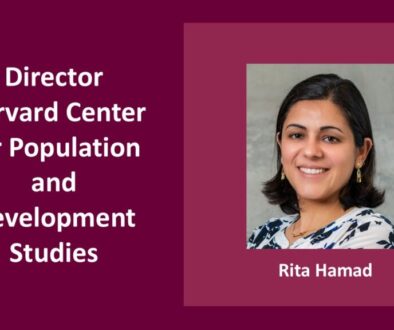Institutional Member of the Month: Case Western Reserve University Department of Population and Quantitative Health Sciences
Andrew SubicaAs a research-intensive department in one of the nation’s top-ranked schools of medicine, the Department of Population and Quantitative Health Sciences at Case Western Reserve University (CWRU) operates at the forefront of public health practice, research, and training. This includes collaborating with local health agencies and other community partners to improve public health and health equity. Embedded in the CWRU School of Medicine, the Department boasts over 30 core faculty encompassing a wide range of disciplines, including community-based practice, clinical and translational research, global health, tobacco regulation, food systems, health equity research, geospatial mapping, biostatistics and data science, and genetic epidemiology.
Through its dedication to training the next generation of public health leaders and scientists, the Department offers an array of graduate degrees and professional development opportunities to students, beginning with its nationally recognized Master of Public Health program. Founded in 1999, the goal of the CWRU MPH program is to develop leaders who will bolster population health, advance health equity, and develop new knowledge through research, education, and community partnerships. The Department also offers numerous graduate degrees in biostatistics, informatics, epidemiology, and clinical research. Due to its integration within the School of Medicine, the Department introduces students to new models of interdisciplinary training by placing its students in the same classrooms with medical, nursing, physician assistant, and dental students to strengthen learning and knowledge for shaping best practices in the surrounding communities and health systems.
As a striking example of the Department’s capacity for blending innovation, student training, and real-world impact, the Department closely partnered with the City of Cleveland Department of Public Health to support local public health capacity and response to the COVID-19 crisis. By embedding seven faculty and multiple staff and students into the public health department, the Department created effective synergies that facilitated close public health monitoring of the pandemic and city-wide responses to changing conditions on the ground. Presently, the Department’s activities emerging from this collaboration foster collaborative solutions to data management, analysis, reporting, training, and COVID-19 dashboard development and implementation. Beyond supporting the city’s epidemiological and public health efforts, this collaboration has also led to new opportunities for professional development for CWRU students and community partners.
The Department contains several academic programs that are highly relevant to public health research, systems, and programming—beginning with the Master of Public Health Program. Accredited by the Council on Education for Public Health, the MPH program offers students a number of dual degree opportunities spanning five program concentrations:
o Population Health Research
o Global Health
o Health Policy and Management
o Health Promotion and Disease Prevention
o Health Informatics
In addition, the Department offers numerous academic and training opportunities targeted toward the population health sciences:
o Master of Science (M.S.), Doctor of Philosophy (Ph.D.), and Graduate Certificate in Biomedical and Health Informatics
o M.S. in Biostatistics and Ph.D. in Epidemiology and Biostatistics
o Master degree via the Clinical Research Scholars Program
o Graduate Certificate in Clinical Research
o Ph.D. in Clinical Translational Science
Jonathan L. Haines, Ph.D. is Chair of the Department of Population and Quantitative Health Sciences, Director of the Institute of Computational Biology, and the Mary W. Sheldon M.D. Professor of Genomic Sciences.






All comments will be reviewed and posted if substantive and of general interest to IAPHS readers.